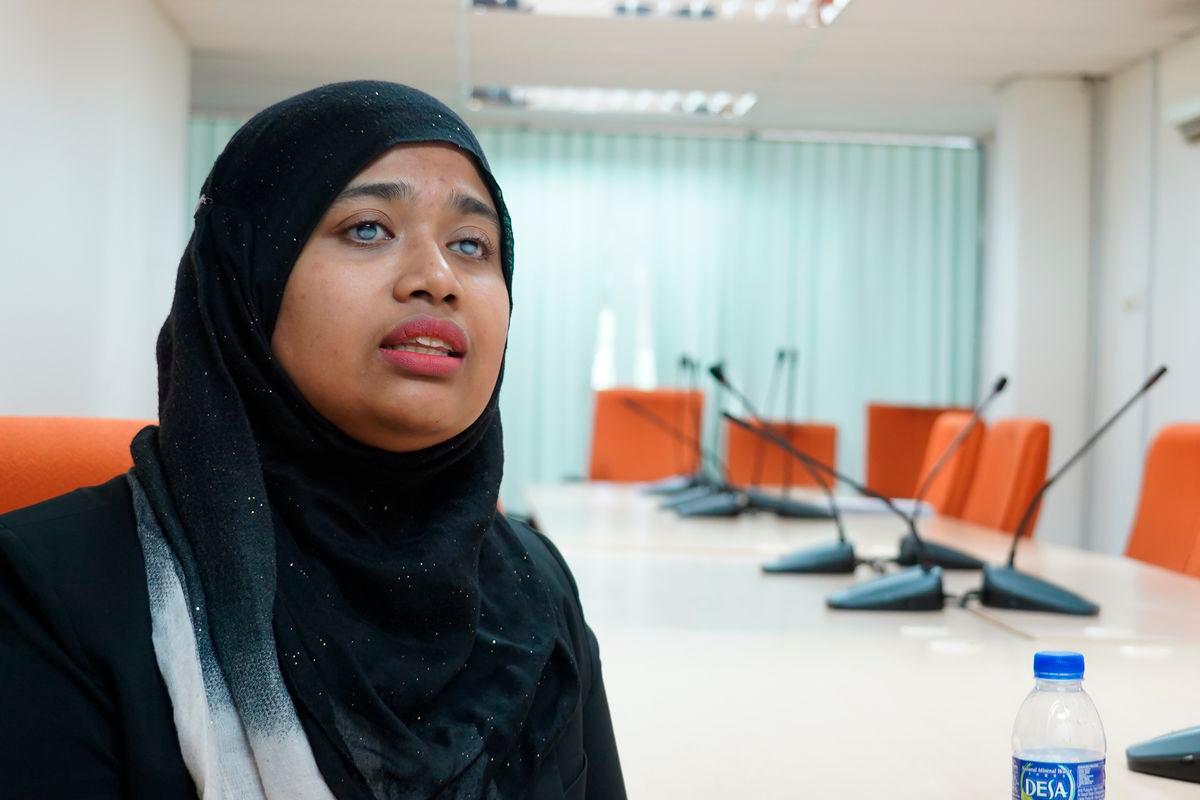PETALING JAYA: For most Malaysians, Merdeka is a dazzling spectacle of fireworks, parades and patriotic songs.
But for the blind and disabled community, true independence is less about fanfare and more about dignity, accessibility and the freedom to live without barriers.
At just 18, Sharifah Nur Jahan Syed Jakirul Alam’s world began to dim. By 21, her sight was gone.
“It was an autoimmune condition called Vogt-Koyanagi-Harada Syndrome,” she explained.
“The chronic inflammation in my eyes eventually developed into glaucoma.”
Instead of an ending, Sharifah found a new beginning.
Now youth development committee coordinator of the Society of the Blind Malaysia (SBM) for Kuala Lumpur and Selangor, she considers blindness the turning point in her life.
“I could see myself better through being blind. When you shut off the visual noise, you look deeper within and find yourself,” she said.
Today, Sharifah is a wife, soon-to-be mother and theatre producer.
Her latest project Siapa Cacat reclaims the word cacat and challenges stereotypes about persons with disabilities.
Yet daily struggles remain.
Earlier this year, she fell onto an LRT track and broke her foot.
“We need protective screen doors, like the MRT has. It’s safer not only for the blind but for everyone,” she said.
Other frustrations include motorcycles blocking tactile paving, poorly maintained facilities and a lack of public awareness.
Discrimination has also scarred her journey.
“Some uncles saw me walking with my cane and said, ‘Muka cantik tapi jual tisu.’ My mother was furious,” she recounted.
For Sharifah, Merdeka is no longer about fireworks at KLCC or playing the tuba in her school band.
Today, she celebrates through poetry, music and activism.
“Merdeka means I can be myself, the way I choose to define me. Strangely, I only discovered that freedom after becoming blind. It gave me the courage to claim my rights and my identity,” she said.
She believes clearer guidance would help blind Malaysians join national celebrations more meaningfully.
“Approach us, ask how you can help and make space for us. Inclusivity is not one person’s responsibility, it’s the community’s,” she said.
Despite the hurdles, Sharifah remains grateful.
“Through the laws and culture here, I feel lucky to be a (person with disability) in Malaysia instead of elsewhere,” she added.
For Muhamad Nadhir Abdul Nasir, 34, who lost his sight at nine due to Stevens-Johnson Syndrome, Merdeka is about equity and opportunity.
“It means my community – the disabled – has the equity, space, support and freedom to contribute. Not only for our own empowerment, but also in enriching our families, communities and the nation’s democracy and economy,” said Nadhir, who chairs SBM’s Communication, Advocacy and Human Rights Committee and serves on the National Council for Persons with Disabilities.
He said the sacrifices of disabled leaders and grassroots activists must also be recognised as part of Malaysia’s history.
“We may not serve in the military or police, but many in our community have sacrificed so much to make Malaysia a more inclusive home,” he said.
While accessibility at national celebrations has improved, he argued that gaps remain.
Information accessibility is the biggest barrier, with limited options for blind people to enjoy historical films, access Braille records or experience national artefacts through touch.
“Inclusivity is not just about attending events. It’s about being able to access and appreciate our culture and history,” he said.
Nadhir urged organisers to include persons with disabilities in planning Merdeka programmes.
Among his recommendations were ensuring venues are accessible, providing volunteers, choosing locations near public transport, adding alternate text to posters and offering audio descriptions at events.









